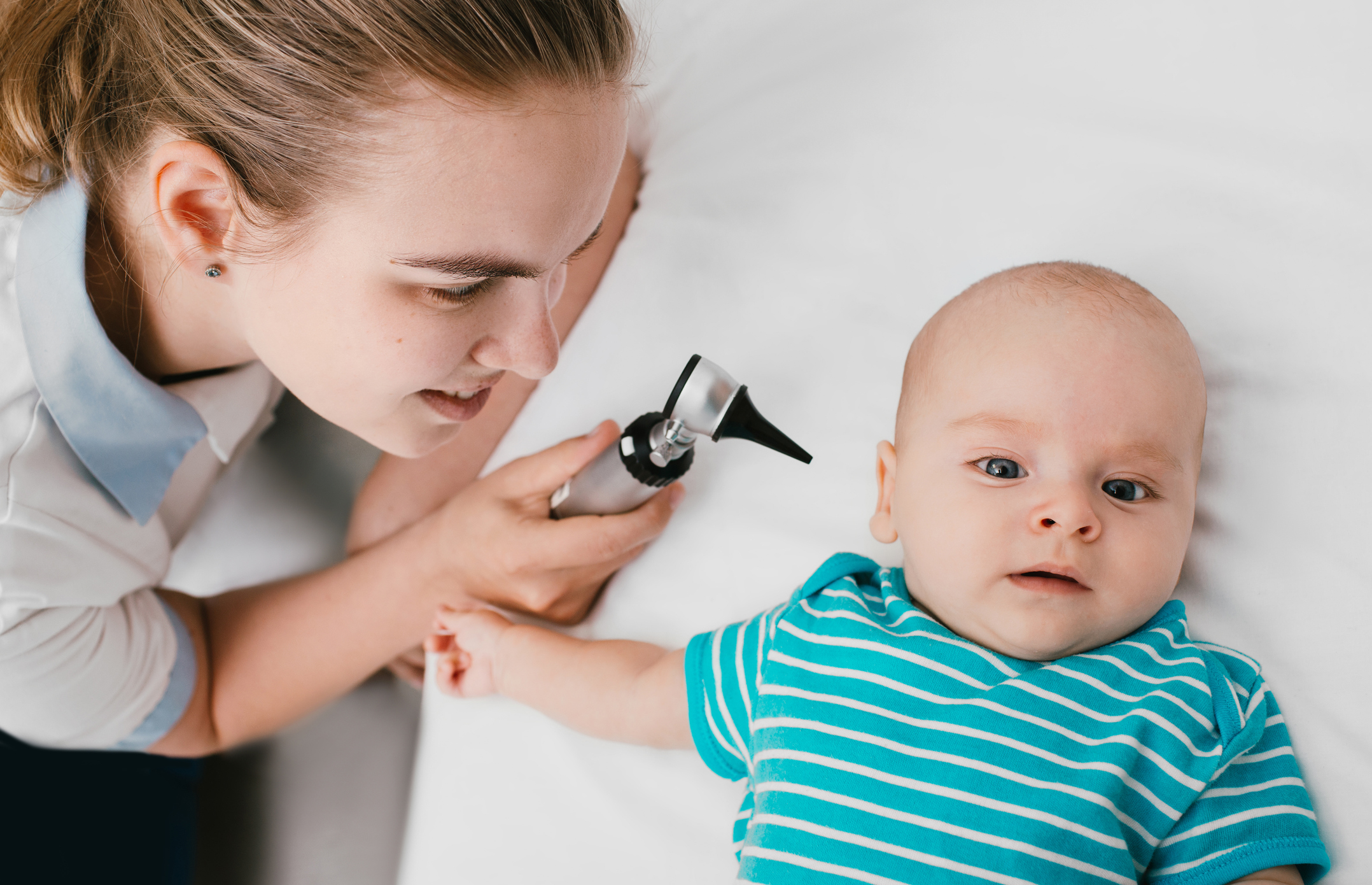Recognizing Signs of Eye Disorders in Newborns
Introduction
The early detection of eye disorders in newborns is crucial for ensuring optimal vision and eye health throughout their lives. While newborns may not be able to communicate their vision concerns, there are several signs and symptoms that parents and caregivers can watch for to identify potential eye problems. In this comprehensive guide, we’ll discuss the importance of recognizing signs of eye disorders in newborns and provide valuable insights to help parents navigate this critical aspect of their child’s health.
Understanding Eye Development in Newborns
- Eye Development Milestones:
- Understanding the normal development of a newborn’s eyes is essential for recognizing potential deviations or abnormalities. Key milestones include the formation of the eyelids, development of tear ducts, and maturation of the retina and optic nerve.
- Common Eye Disorders in Newborns:
- Several eye disorders can affect newborns, including congenital cataracts, glaucoma, retinopathy of prematurity (ROP), strabismus (misalignment of the eyes), and refractive errors such as nearsightedness or farsightedness.
Recognizing Signs of Eye Disorders
- Abnormal Eye Appearance:
- Observing any physical abnormalities or asymmetry in the appearance of the newborn’s eyes, such as cloudy pupils, crossed eyes, or differences in size or shape, may indicate underlying eye disorders.
- Excessive Tearing or Discharge:
- Persistent tearing, redness, or discharge from the eyes may signal an obstruction or infection in the tear ducts, which can affect vision and require medical attention.
- Light Sensitivity:
- Newborns exhibiting sensitivity to light or discomfort in bright environments may have underlying eye conditions such as cataracts or retinal abnormalities.
- Poor Eye Tracking:
- Difficulty following objects or making eye contact with caregivers may indicate problems with visual development or eye muscle coordination, such as strabismus or amblyopia (lazy eye).
- Lack of Visual Responsiveness:
- Newborns should exhibit visual responsiveness to light and movement within the first few weeks of life. A lack of visual responsiveness or significant delays in visual tracking may indicate vision impairment or neurological issues.
- Excessive Rubbing or Squinting:
- Persistent rubbing of the eyes or squinting may be a sign of eye discomfort, refractive errors, or sensitivity to light, requiring further evaluation by an eye care specialist.
Seeking Professional Evaluation
- If parents or caregivers observe any of the aforementioned signs or have concerns about their newborn’s eye health, it is essential to seek prompt evaluation by a pediatric ophthalmologist or optometrist specializing in pediatric eye care.
- Early intervention and treatment are critical for addressing eye disorders in newborns and preventing long-term vision problems or developmental delays.
Conclusion
Recognizing signs of eye disorders in newborns is crucial for ensuring timely diagnosis and treatment, ultimately preserving their vision and overall eye health. By monitoring for abnormalities in eye appearance, behavior, and responsiveness, parents and caregivers can play a vital role in promoting optimal eye development and addressing potential concerns early on. With proper evaluation and intervention by eye care specialists, newborns with eye disorders can receive the necessary care and support to thrive and achieve their full visual potential.
Summary
This article emphasizes the importance of recognizing signs of eye disorders in newborns to ensure optimal vision and eye health. Understanding eye development milestones and being aware of common signs and symptoms can help parents and caregivers identify potential concerns early on. Seeking prompt evaluation and treatment from eye care specialists is crucial for addressing eye disorders in newborns and preventing long-term vision problems.
World Eye Care Foundation’s eyecare.live brings you the latest information from various industry sources and experts in eye health and vision care. Please consult with your eye care provider for more general information and specific eye conditions. We do not provide any medical advice, suggestions or recommendations in any health conditions.
Commonly Asked Questions
Yes, untreated eye disorders in newborns can lead to long-term vision problems or developmental delays, underscoring the importance of early detection and intervention.
Newborns should have their eyes examined shortly after birth as part of routine newborn care, and further evaluations may be recommended based on clinical findings or risk factors.
Risk factors include family history of eye disorders, prematurity, low birth weight, maternal infections during pregnancy, and exposure to certain medications or toxins.
No, while some eye disorders are present at birth (congenital), others may develop or be detected later in infancy or childhood.
Yes, many eye disorders in newborns can be treated or managed with early intervention, including surgical procedures, corrective lenses, or vision therapy.
Pediatric ophthalmologists specialize in diagnosing and treating eye disorders in infants and children, providing comprehensive eye care tailored to newborns’ unique needs.
Parents can monitor eye development by observing physical appearance, responsiveness to light and movement, eye tracking ability, and signs of discomfort or irritation.
Common eye disorders in newborns include congenital cataracts, glaucoma, retinopathy of prematurity (ROP), strabismus, and refractive errors.
Parents should seek prompt evaluation if they observe any signs of eye disorders or have concerns about their newborn’s eye health.
Common signs include abnormal eye appearance, excessive tearing, light sensitivity, poor eye tracking, lack of visual responsiveness, and excessive rubbing or squinting.
news via inbox
Subscribe here to get latest updates !








